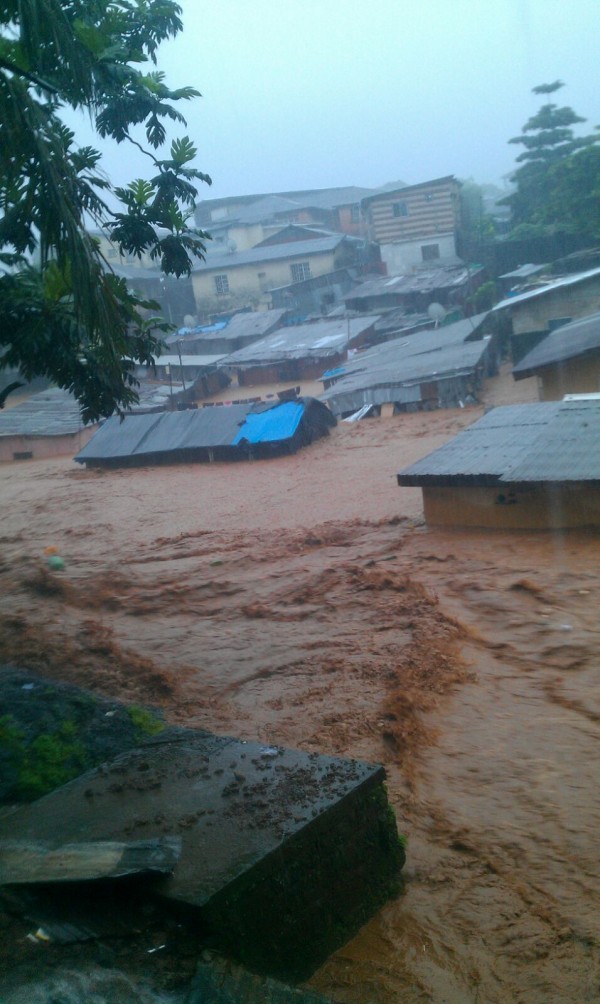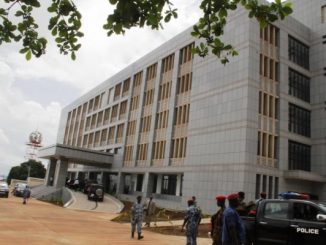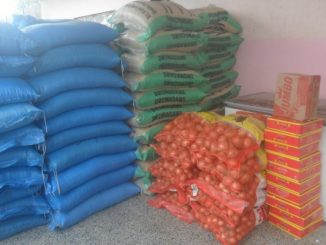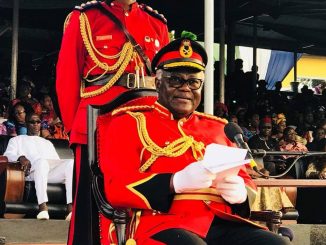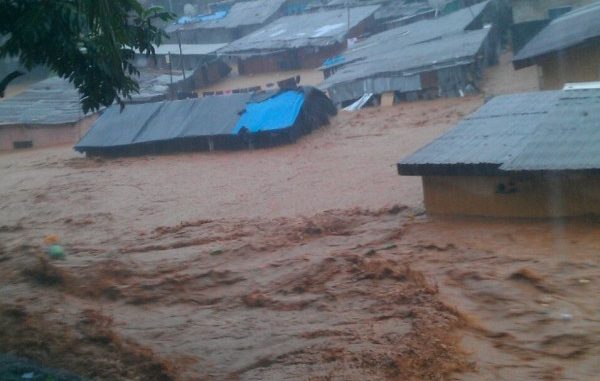
Titus Boye-Thompson Communications Consultant
Freetown floods, the rains cry down torrents and the city is left in disarray. The blame game started as soon as news of the devastation spreads and the rush to make political capital out of a natural disaster was never diminished by the toll of human suffering. The news of flood waters raging became flash points, spreading like wildfire on social networks. Soon enough, the digital age made it possible for my younger brother to make his usual frantic call to find out if I am OK but still vexed, wondering what on earth am I still doing there when I could have been safely ensconced like others in a London flat watching Premier League matches and drinking brandy by the fireplace.
There are some salient points for consideration here. The loss of life, property and community is real. People have settled in harm’s way because they have been conditioned to accept their fate. There are no social or economic safety nets for our communities so they tend to forage for their own existence. That the main reason for living in slums is poverty would be a tried and tested altruism but nonetheless, there are some who would tell you of stories of those who managed to climb out of slums and become respectable people in the wider community. There are stories of slum dwellers with children who attend private schools, even though such would be the exceptions that prove the rule. The point here is that people are in harm’s way because of poverty, an endemic state of helplessness and a pervasive lack of desire to improve on health and sanitation. Why then do others blame the people in slum areas or in fact the Government?
The most insidious explanation dispels the nation spirit but continues the demarcation of our peoples as a nation of unequal parts. There are those who would tell you that the City is overcrowded and that is why people live in slums. Ordinarily, such an explanation tend to be plausible until you enquire from the very slum dwellers to find out that most of them are people who have strayed to the fringes of mainstream society but their original coordinates are more likely to be local to their slum communities. Those who are at Kroo By tend to have moved down from Tarpong Corner, Setta, Gran or Nana Kru streets more than they would have come from Magazine Cut. And so it is for the other areas of Susan’s bay, Moa Wharf etc. It is therefore a distressful consideration to equate slum dwellers with rural migrants as if those who have come from the Provinces or rural areas have no right to seek a better life in their nation’s city. The considerations here should be focused on the need to deliver development for our peoples as a panacea to such wanton loss of life and senseless destruction of property and livelihood.
Another aspect of the narrative at such occasions centre around the previous attempts to relocate such people, why such attempts have failed or moreover, on the Government’s dispensation to demolish such structures with our without notice. There is some talk about the previous Government making a huge effort to relocate those who are at the Kroo Bay. It is reported that they were given money, land and zinc to start a new life away from the slum. The attempt failed woefully because the people took the money, and Zinc but refused to occupy the land that was offered. Any observer would tend to agree that such an approach was fraught with serious problems for the simple reason that they failed to accept that what the people have is a community with its own structures, its own economy, its own laws, bye laws and edicts and a rationale engagement pattern that those from outside would fail to see. There are those who would say that the fault of the slum dwellers are compounded by the NGOs who go there to build toilets, schools and health centers, thus making their lives easy to maintain.
There is a seeming escapism in our collective psyche, to blame everything on an enemy even if that enemy is from within, but no corresponding attempt to negotiate with the enemy, to call a truce or build fences. To see this natural disaster as a result of environmental degradation is as equally wrong as to maintain that the city of Freetown is overcrowded. Though there are valid arguments for both of those points, the issue that renders them infertile is the attitude towards the people in the city as strangers, in their own country. What is more rational is the fact that Freetown is not being allowed to breathe. In Western countries, when new settlers come into an urban area, what usually happens is for themore established community to move out to other areas, thus making way and giving space to the new entrants and to allow them to benefit from the facilities and amenities of the city that so much drew them there. What is refused to Freetonians was the inability of them to buy land and resettle elsewhere when Freetown became a pull destination. The Constitution for example describes the Creoles who owned and built Freetown as a city as non natives and that definition forbade them access to land in the Provincial areas. With that one accord, Freetown was denied the ability to breathe. The Creoles I would imagine, could have moved on to other parts of the Country even as people from such parts clambered to come here. It takes just one person to make the move, and by the demonstration effect, most others would follow. It took a President like Ernest Bai Koroma to hold Makeni so close to his heart, now look where Makeni is in the minds of most other people. As a Creole, I would not have minded a couple of acres anywhere in the provinces to build the type of mansion that I could never afford to build in Freetown. In fact, I even tried, only to be sold a swamp that is being actively farmed. It is for this reason alone that it would be folly to blame Government or the poor slum dwellers for the degradation of Freetown or for the seeming vulnerability to rain water flooding. Those who have settled in such areas had no choice other than to engage at that fringe survival that became theirs to capture. Government would have no firm dealings with them because they pose less danger to society when they are congregated in known places and fend for themselves. This is not a socialist oriented society that would have regard for supporting people out of poverty. This country is an unashamedly capitalist, dog eat dog, all man for himself society with no moral space to accommodate suffering or even countenance poverty in its manifested forms.
The solution therefore is for those restrictions that tend to make us unequal to be removed. Let the land up country be vested in the Chiefs but let the Chiefs be given clear guidelines on the eligibility of every Sierra Leonean to the land subject to reversionary title. In Ghana, even though land is traditionally held by Chiefs and families, no one is allowed to buy land freehold. All land is leasehold and registered as such irrespective of the security of tenure and the automatic right to renewal. I would make this cry until it is heard, lets expunge the definitions that made one Sierra Leonean different and unequal to another in our Constitution. Creoles are as native to this land as anybody else. Time and circumstances have proved it.

